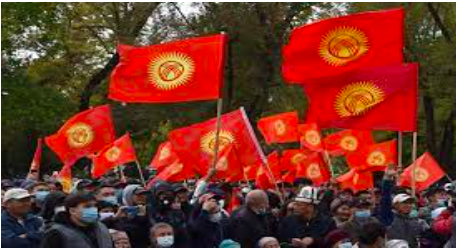One Who Did Not Come Back
Posted on : July 28, 2019Author : AGA Admin

No single Indian has been more revered by the ordinary Chinese than a doctor from a middle-class family in northern India namely Dr. Dwarkanath Kotnis, who is worshipped by the people of China even after his death way back in 1942. Each year on the day when the Chinese pay respect to their ancestors, the grave of this doctor on the plains of North China is covered with flowers donated by the local Chinese. Kotnis was born to a doctors’ family in Sholapur, Maharashtra in 1910 and studied medicine at the medical college of the University of Bombay in the early 1930s. In 1938 after China faced a severe medical crisis on being attacked by Japan, Kotnis was sent to China by Subhash Chandra Bose and Jawaharlal Nehru, as a part of a medical team consisting of four other doctors namely M. Atal, M. Cholkar, B.K. Basu and D. Mukerji. Dr. Kotnis stayed on in China working in mobile clinics to treat wounded soldiers and was eventually appointed as director of the Dr. Bethune International Peace Hospital built by the Eighth Route Army, led by the Communist Party of China on the plains of North China. According to his wife Guo Qinglan, a nurse who joined Kotnis’ hospital, in one long-drawn-out battle against Japanese troops in 1940, Kotnis did operations for 72 hours non-stop, without any sleep as he went on to treat more than 800 wounded soldiers. Unfortunately, while rest of the Indian doctors could return to their homeland after the War, Dr. Kotnis succumbed to seizures at a tender age of 32 leaving behind his infant son, widow and remarkable heritage of selfless service for a nation that was not his. Today, Dwarkanath Kotnis is commemorated together with the Canadian Dr. Bethune in the Martyrs’ Memorial Park in Shijiazhuang. A small museum there preserves a handbook that contains texts that Kotnis wrote on his passage from India to China, some of the instruments that the surgeons used at that time and many photographs of doctors, some with the Communist Party of China’s most influential figures, including Mao Zedong. China also made a movie on Dr. Kotnis in 1982, called “Dr. Kotnis” thus following India who immortalized her selfless son in the legendary Shantaram movie of 1946 “Dr. Kotnis Ki Amar Kahani” and the publication of his best-selling biography “One Who Did Not Come Back” in 1945.




